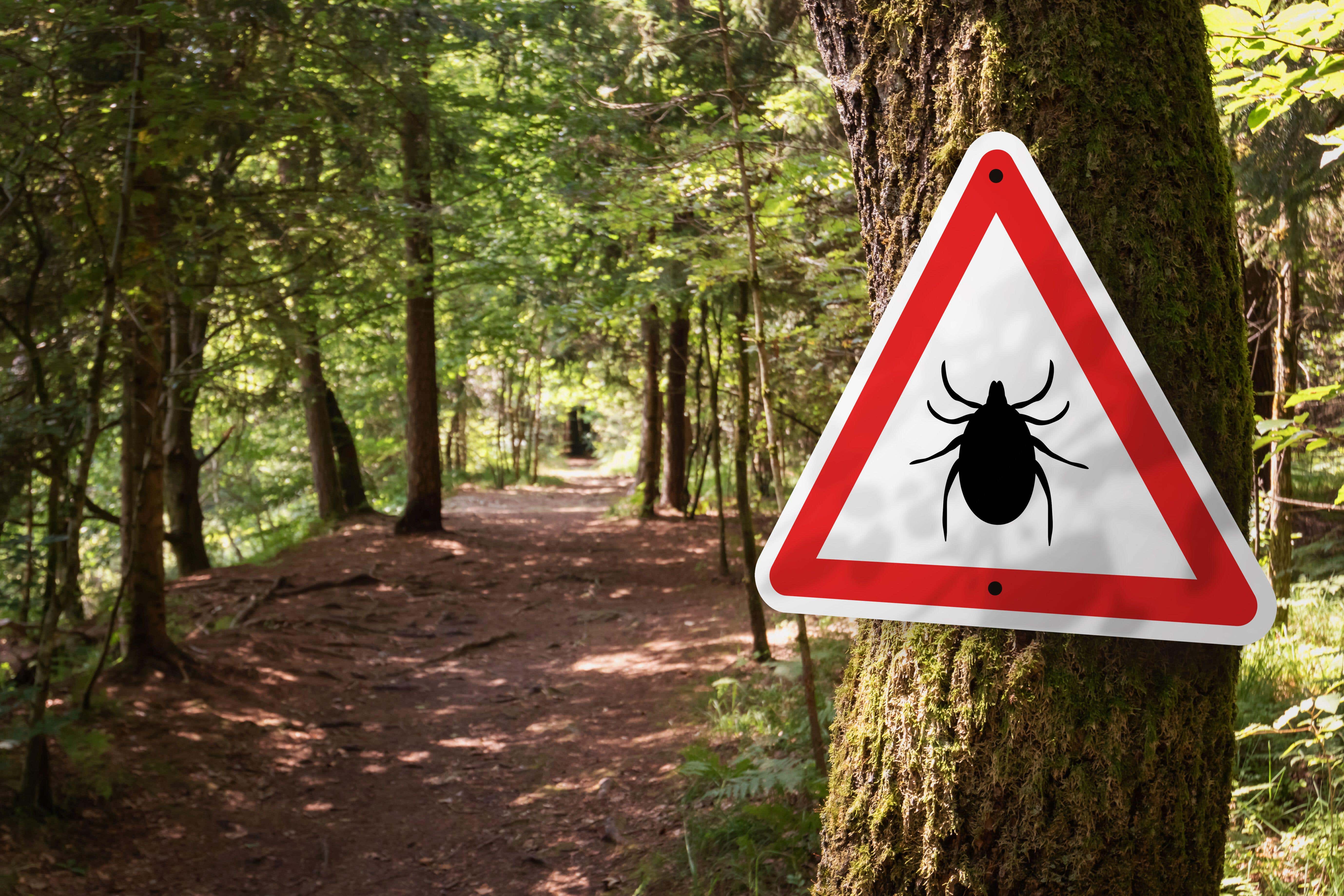A wave of new disease-carrying bugs may be heading our way
Climate change puts the UK on track to become a holiday destination for heat-happy disease spreaders, writes George Francis Lee

Checking for ticks rarely enters the mind of the average Brit. It might be during the family camping trip or after an ill-advised shortcut through some tall grass. It is no surprise that our vigilance is lacking: our docile wildlife poses very little risk to our health.
Ask yourself: when did you last cover your legs for a hike, or better yet, bring along a tick remover? And yet recent news of tick-borne encephalitis virus (TBEV) highlights that our friendly island is changing, so much so that it might soon make a bushtucker trial seem like a picnic. In fact, a wave of new disease-carrying bugs – fuelled by climate change – may not be far off at all.
Although climate change directly affects conditions like respiratory diseases, one of its greatest health dangers lies in the changing behaviours of animals that can spread disease to humans – everything from birds to mosquitos and, of course, ticks.
Previously, TBEV had never been observed in the UK. Now we know there have been three confirmed cases since 2019.
Disease carriers – known as “vectors” – spread disease by passing it on to hosts, but our comfy home has historically been too cold to offer an ideal breeding (and feeding) ground. Note the past tense, because the UK is on track to become a holiday destination for heat-happy disease spreaders.
Lack of cultural knowledge around ticks safety is certainly a concern, but ticks are far from the only species with their eyes set on Albion’s shores.
Take dengue, for example, a tropical disease spread by mosquitoes that causes fever, vomiting, and, if untreated, death. A warmer planet means that mosquitos will survive for longer, reproduce more often, and bite at a higher frequency.
One 2019 paper estimates that 60 per cent of the global population will be at risk of dengue by 2080. It’s simple: as places warm, new mosquito real estate opens up. You only have to look back to last year and across the Channel to see how uncomfortably close the UK’s first case could be.
But it isn’t just heat. What’s worse is that temperature variation also affects the time it takes for a virus to replicate and then spread to a different host – known as the extrinsic incubation period, or EIP.
One 2020 paper in the scientific journal Epidemics showed that the temperature variations that are characteristic of climates like the UK’s can actually increase the risk of disease spread.
So, while historically warm countries become scorched and unlivable for humans and animals alike, the UK may land smack-bang in the middle of the Goldilocks zone, acting as a kind of incubator for insects to reproduce and expand.
In fact, some areas of the UK are already there.
Add in close contact between species that would otherwise be separated (whether that’s due to habitat depletion or agriculture) and you create an ideal situation for vectors to thrive and spread.
None of this should come as a surprise. Research into shifting disease distribution has been conducted for decades. The most recent IPCC report states that measures such as surveillance, early warning systems, and vaccine development could help. Though, preparedness seems lacking in our government.
The UK has a migration problem, but it’s not a people one. It’s the migration of disease to a nation woefully unequipped to deal with it that should worry us all. While the government points and screams about refugees in boats, it’s the bugs crossing the channel that should be the greatest cause for concern.
George Francis Lee is the associate editor of ‘The Pathologist’
Join our commenting forum
Join thought-provoking conversations, follow other Independent readers and see their replies
Comments
Bookmark popover
Removed from bookmarks